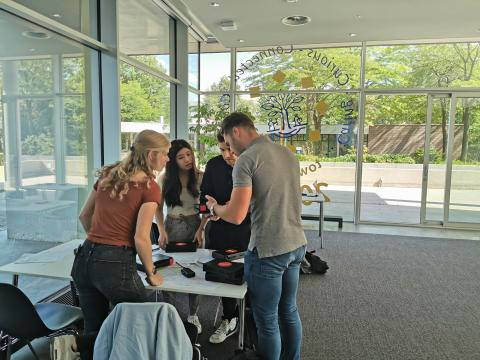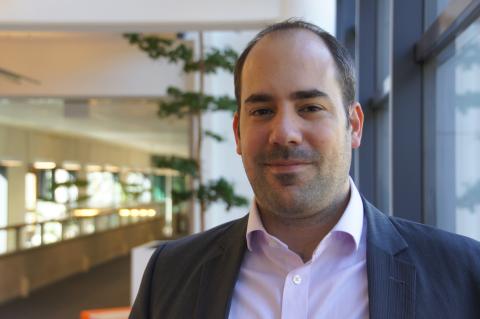Serious Disaster in My Backyard game broadens students’ perspective
One of the first and surprising classes Master’s students of Information Management take at the start of the academic year is devoted to playing the serious Disaster in My Backyard game. In a simulated disaster area, students set to work applying theory to a realistic societal situation.
“Playing the game, students can show how well they can work together, share information efficiently, and make choices effectively. The simulated crisis allows students to acquire skills and to learn how they can use their knowledge in practice,” says Kenny Meesters, lecturer and researcher at the Tilburg School of Economics and Management.
In the course of the game, students increasingly become aware that they need each other, and that awareness hopefully prompts them to share information to achieve the best result together.
- Kenny Meesters

He adds: “The game also shows that information managers can work in a wide range of environments. In addition to working as consultants for businesses or in technical positions, information managers can also be of real value to organizations like the Red Cross, the Security Region, or the UN. This dimension of the game broadens students’ perspective and helps them build character."

Kenny Meesters explains that the Disaster in My Backyard game has been developed as a field training tool. “Participants learn to act in a simulated disaster area and to save as many victims as possible. Here good information management is the key to success. And the fact that it is a game, developed for humanitarian work, makes it interesting to students. We need more expertise to make the world a better and safer place. If the game succeeds in introducing more students to the world of humanitarian aid, I’m happy to do my bit.”
Off the beaten track
We spoke with Boris van der Voorn, a student of Information Management. He took part in this serious game last year and that has brought him a lot. Boris points out that the game sets itself apart from other cases and forms of education by being truly interactive. “The game simulates a real situation, in which students use briefcases containing QR codes to collect assignments and to save as many victims as they can. Students are walking around, looking for ‘victims’, and consult face to face and through walkie-talkies to get the situation under control.”
Boris also says that the game has changed his ideas about his degree progam and post-graduation options. “It’s hard to miss the corporate sector in the degree program, but it is also interesting to experience a different perspective and to learn what information managers have to offer non-profit organizations, for example in the area of humanitarian work.” Boris explains that information managers understand the potential of technology and that this understanding makes it easier for them to design technological innovations that can help solve societal issues. “We know which technologies are available and how these can be used in practice.”
Using this knowhow in a humanitarian organization can make a real difference to society.
- Boris van der Voorn

That is why Boris is going to do a graduate internship at the humanitarian aid office of the United Nations, where he will also write his thesis. “I find it really interesting to learn more about crisis management in the real world, especially at a humanitarian organization.”
